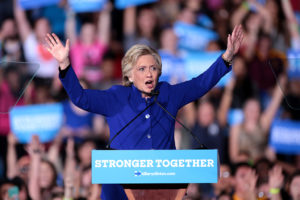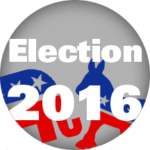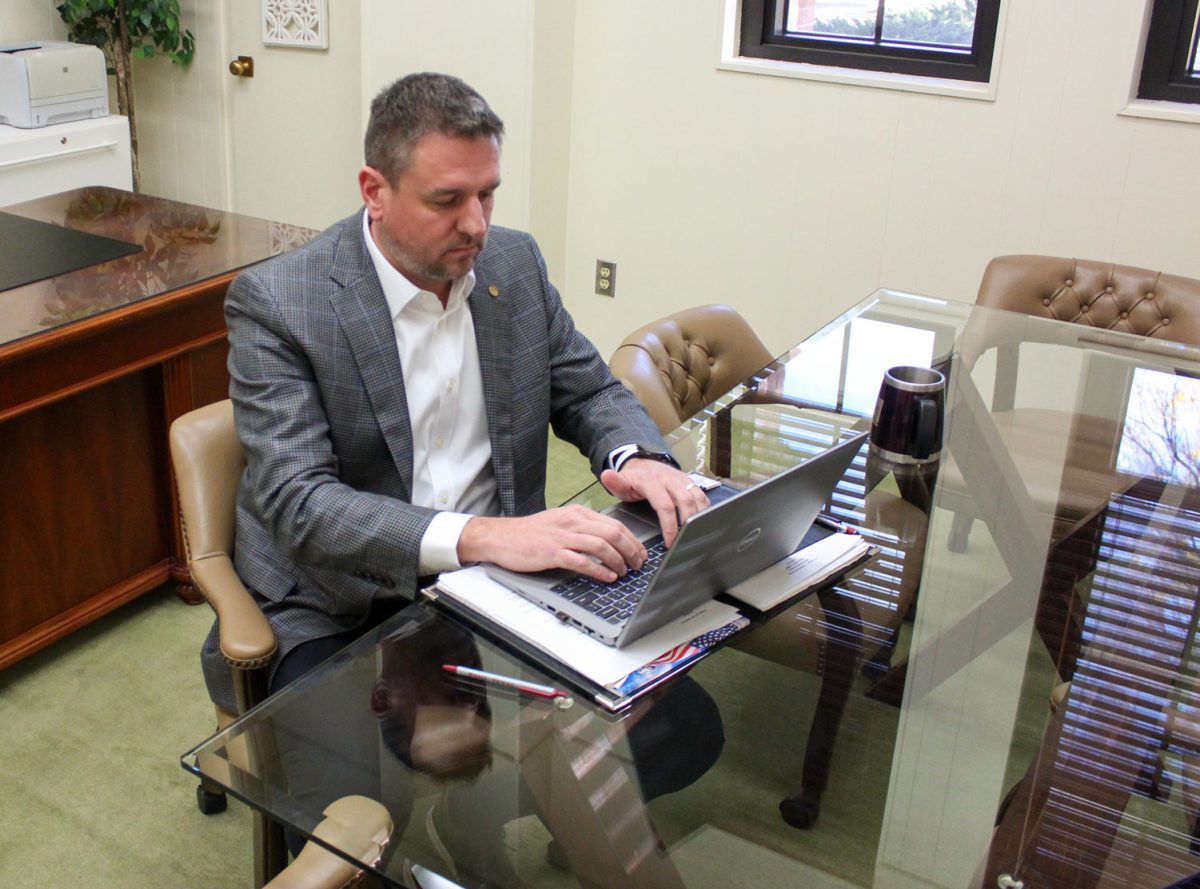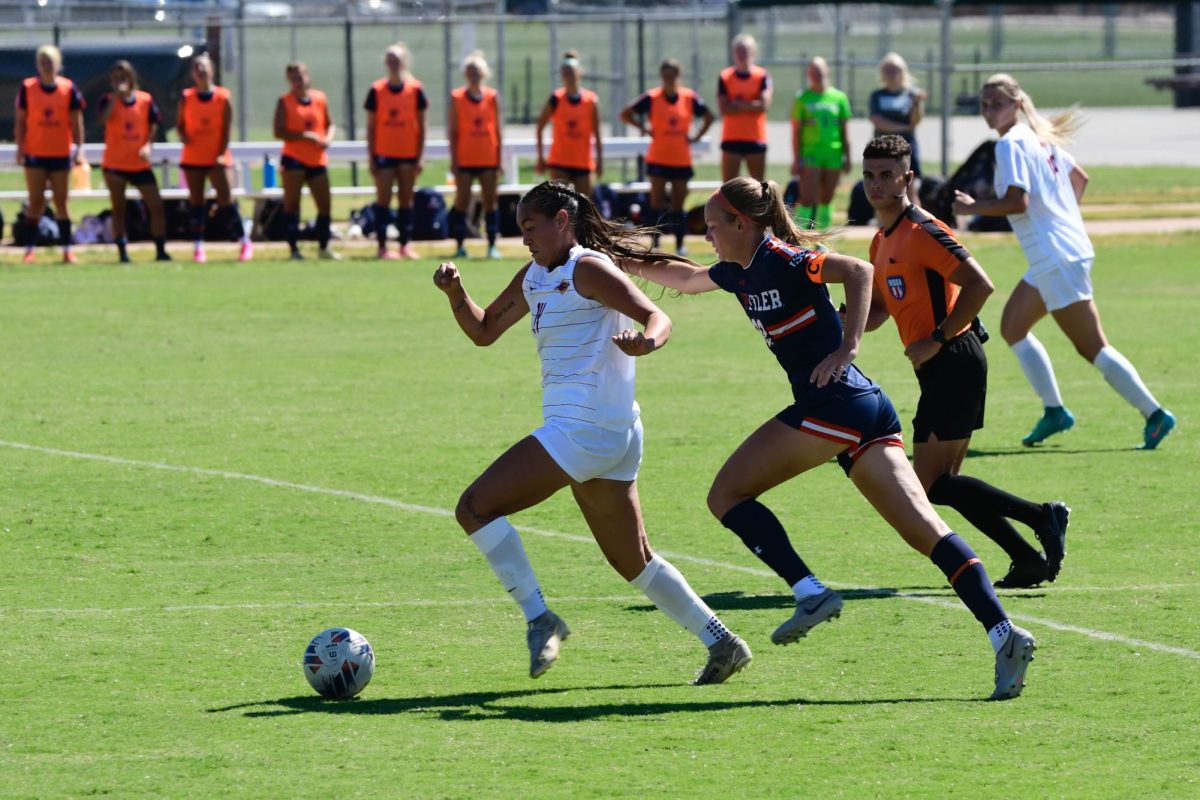
 It first happened in 1872, but not without controversy, when Victoria Woodhull became the first female to run for president of the United States. It took almost another 140 years for a female to reach the top of a major party presidential ticket and to become the first female at the top of a major party ticket.
It first happened in 1872, but not without controversy, when Victoria Woodhull became the first female to run for president of the United States. It took almost another 140 years for a female to reach the top of a major party presidential ticket and to become the first female at the top of a major party ticket.
“The first female president. We’ve never had that before. People having been fighting for this exactly. It’s a huge step,” Eric Arumugam, criminal justice junior, said.
Linda Veazey, political science associate professor, teaches a women and gender studies class and she said having a female president would help advance America.
“The U.S., among our peer countries actually lags behind in female leadership, and also women’s representation is government in general,” Veazey said.
Veazey said having a female president will send a positive message to the youth of the country 168 years after 100 women and men signed the Declaration of Rights and Sentiments at the Seneca Falls Convention in 1848.
“For young women and men, it sends the message that it’s possible. It’s easy to say that anyone can grow up to be president, it’s easy to say that men and women can be president, but whenever you haven’t had one example [of a female president], it’s not really clear that it is possible,” Veazey said. “The symbolism is important.”
Arumugam also said symbolism is important. He said this will give women interest to reach their goals.
“I understand there are women who are opposed to her, but the symbolism behind Hillary being president is huge,” Arumugam said. “There are girls who are often suppressed for their interests. It gives give them that interest to reach a higher goal.”
However, there have been mixed opinions about Clinton becoming the first female president in the nation’s history.
“I feel nauseous,” Laramie Walton, political science sophomore, said. “Hillary Clinton has proven, through her actions in the Benghazi attacks and other political stances, that she doesn’t understand or respect the most important right: the right to life. If she or any other person can’t get that first issue right, I wouldn’t trust them to look out for any of my other rights or interests.”
Denzel Dodson, sports and leisure/business management senior, said he does not trust Clinton either.
“I feel that [Clinton] should be locked up in prison for the whole Benghazi and Anthony Weiner email scandals,” Dodson said.
Arumugam said the email scandal is irrelevant.
“I know there are many issues with [Clinton],” Arumugam said. “It’s kind of a big that she lied [about the emails], but it’s not directly affecting how we operate as a country.”
Veazey said she recognizes the controversy surrounding the Clinton campaign.
“There have been a lot of different opinions on Hillary Clinton as a candidate,” Veazey said. “There are a lot of people who think it would be nice if it was someone other than Hillary Clinton, and maybe that’s true, but that’s not the candidate we have.”
Arumugam said Clinton was a better candidate than Donald Trump, republican presidential nominee.
“She knows what she’s doing. Aside from her political experience, she is generally better with people besides Trump supporters straight up hating her,” Arumugam said. “The Republican National Convention made her out like a demon, and yes, she’s done bad things, but that’s a politician; they have to make bad decisions to learn from it. Donald Trump is way scarier.”
However, Dodson said Clinton was the scarier option.
“She’s great at telling people what they want to hear. Her stance on policies changes based on current events and what is trending in society,” Dodson said. “She’s a manipulator and a liar.”
Arumugam said women voted for Clinton because of derogatory comments made by Trump.
“[Trump’s comments] really pushed women towards Hillary, realizing that Trump isn’t out to help women, Trump isn’t out to help people of color, and that’s huge,” Arumugam said.
However, Veazey said the voting trends cannot be pinpointed to a single reason.
“Female voters have tended to prefer democratic candidates in elections,” Veazey said. “There are a lot of variables. Is it because she’s a female candidate? Is it because of her political stances? Is it because of the stances of her opposing candidate, Donald Trump? I’m sure that’s something that political scientists will study in the future, but at the moment we don’t have enough information to fully know.”
There are people who say that Clinton should not be the first female president.
“She does not represent women well,” Dodson said.
Walton agreed.
“I can’t speak for all women but I personally don’t tend to violate federal laws, use corrupt political favors and blatantly lie to escape the consequences,” Walton said.
Veazey, a self-proclaimed feminist, said Clinton does not need to be representative of all women.
“It’s not fair to ask any one person to represent an entire gender,” Veazey said. “It would be a mistake to think that Hillary Clinton embodies everything a female president should be. That’s not how we typically think about male candidates. We didn’t ask if Donald Trump represents men well.”
There have been people who have said females are too emotional to be president. Veazey disagreed.
“I would say that’s a stereotype. It’s not a good idea to base decisions on presidency or hiring or anything else on stereotypes because they’re distortions, they’re gross generalizations,” Veazey said.
Dodson said he did not want to make the election about gender.
“Personally, I don’t care whether the president is a female or not,” Dodson said. “The president should be chosen based off of their own morals, values, and what they will do to make our country better.”
However, Veazey said the gender played a significant role in this election.
“I’ve been surprised how much, especially in the last month, how much we’ve been talking about gender, when it comes to the candidates, but also just gender issues in general,” Veazey said. “It’s good that we’re having a national conversation about this. It’s an important conversation, and I sure hope it doesn’t end with the election. These are conversations we should always be having.”
RELATED STORIES
- Trump squeaks by in tight election by Jeromy Stacy
- Hillary Clinton first female on major party ticket by Kelsey Purcell
- Jesse Brown makes uncontested bid for city council by Michelle Dickey
- Jesse Brown: the man behind the city council candidate by Michelle Dickey
- Student debaters talk political stereotypes by Brendan Wynne
- First student debate provides silver-lining for students by Dylan Hall
- Republicans and Democrats battle at podium by Chris Norrie
- Race relations impacting minorities votes in the fall election by Alyssa Mitchell
- The Electoral College: It’s who you’re really voting for by Emily Simmons
- Record levels of dissatisfaction fuel election trends by Garrett Hutchinson
- Medical records, tax returns and emails: Nothing is private when running for office by Jonathan Benyarko
- Students back national Republican trends on immigration by Stephen Gomez
- Third parties and the “wasted” vote by Caleb Sneath
- International view: America overlooks choice by Jeanette Perry
- Students don’t think national security is an important issue by Rodrigo Mireles














